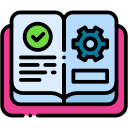
Interactive Learning Techniques for Remote Employees
Chosen theme: Interactive Learning Techniques for Remote Employees. Welcome to a lively guide that turns passive screens into collaborative spaces where people practice, discuss, and build skills together—no matter the distance.
Designing Engagement for Remote Classrooms
Begin with a one-minute prompt, emoji check-in, or visual poll connected to real work decisions. A quick, authentic question lowers pressure, warms microphones, and invites voices that might otherwise stay muted. Post your favorite icebreaker in the comments so others can borrow it this week.

Breakout Rooms That Actually Work
Give each room a task, a template, and a time box. Assign roles—facilitator, scribe, challenger—to distribute responsibility. When the clock is visible and the deliverable concrete, conversations move faster. Comment with your go-to breakout prompt that always gets people talking.

Breakout Rooms That Actually Work
Groups of three to four reduce social loafing and invite quieter colleagues to speak. Share a brief story prompt or realistic problem so people begin with experience, not theory. What group size works best for your team’s culture and bandwidth?
Scenario-Based Practice and Role-Play
Use genuine emails, customer transcripts, or bug reports—scrubbed for privacy—to anchor decisions in context. Ambiguity trains judgment better than multiple choice. Share a scenario you wish your team had practiced before the last escalation or tough stakeholder meeting.

Five-Minute Missions
Replace hour-long modules with short tasks that end in an observable output: a drafted message, a checklist, or a quick demo. Small wins build momentum. Which micro-task would help your team most this week? Share it so others can adapt and try.
Spaced Nudges That Stick
Send follow-ups at increasing intervals—one day, three days, a week—each with a tiny retrieval challenge. The recall effort is the learning. Comment if you’ve tried spaced prompts and what cadence kept completion high without becoming noise.
Just-in-Time Job Aids
Pair micro lessons with searchable job aids—decision trees, checklists, and sample wording—embedded where work happens. Invite feedback to refine them. Which job aid would save your team ten minutes today? Tell us and we’ll share a template.
Gamification Without the Gimmicks
Design quests that mirror real workflows: resolve a tricky ticket, negotiate a scope change, or improve a sprint demo. Reward outcomes and reflection, not clicks. What challenge would make a genuine difference in your team’s week? Drop ideas below.
Gamification Without the Gimmicks
Create team-based goals where progress continues as colleagues log in from different regions. Shared victories foster belonging remotely. Tell us how your distributed team celebrates milestones so others can borrow your rituals and adapt them.



Measuring Impact and Iterating Fast
Use two-question pulse checks after each session: confidence shift and one thing to try. Track trends across cohorts to spot friction. What micro-survey question revealed the most about your learners’ needs? Share it to help others refine.
